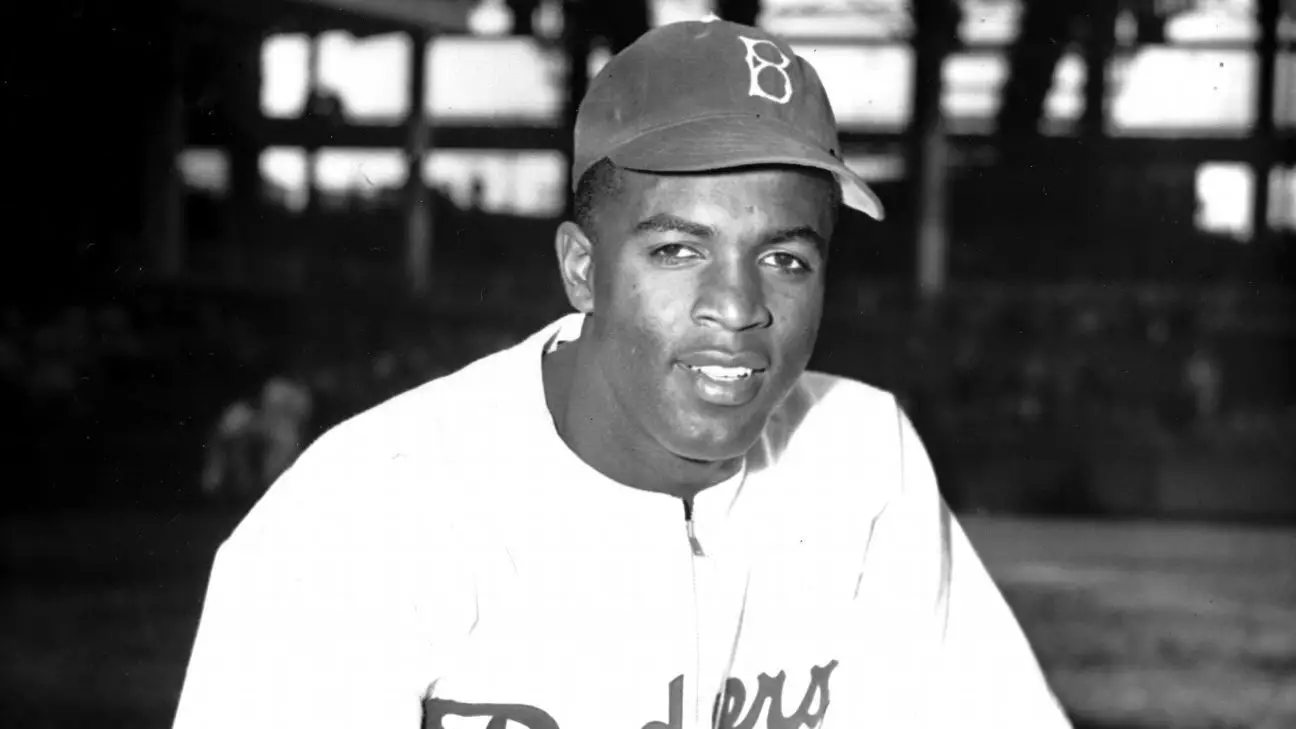The digital landscape is, ironically, far less permanent than it appears. Recently, the tale of Jackie Robinson’s military service was nearly wiped clean from the Department of Defense (DoD) website, a decision that sparked both outrage and contemplation about the implications of such political maneuvers. This act of erasure resurfaced amidst a wider Pentagon initiative aimed at minimizing mentions of Diversity, Equity, and Inclusion (DEI) in its communications. The incident shines a stark light on how history can be manipulated to fit evolving narratives, often to the detriment of the richness that diverse experiences bring to the American story.
Robinson’s Military Service: More Than Just a Baseball Icon
Before he shattered the color barrier in Major League Baseball, Jackie Robinson served his country with distinction as a second lieutenant in the U.S. Army during World War II. Enrolled in the 761st Tank Battalion, often known as the Black Panthers, Robinson epitomized the dual struggle against racial prejudice both on the battlefield and in civilian life. The significance of his military service cannot be overlooked; it underscores a foundational aspect of Robinson’s legacy as a man who faced systemic racism with unparalleled courage. His court-martial in 1944 for refusing to move to the back of a bus was a prelude to the struggle he would continue in sports and civil rights, illustrating a character that would not yield to injustice.
The Pentagon’s Narrative Shift
Pentagon press secretary John Ullyot’s statements reflect a philosophical shift in how military history and heroism are packaged for public consumption. While he expressed admiration for Robinson and other heroes, his remarks highlight an apparent resistance to recognizing the complexities of these figures—especially in relation to race. Ullyot’s insistence that the DoD only celebrates “patriotism and dedication” strips away the nuances that make these stories resonate with broader sociopolitical contexts. By distancing themselves from DEI principles, there is an unspoken push to homogenize narratives, effectively favoring a sanitized version of history that ignores the struggles against racial discrimination and inequality.
The Dangers of Historical Amnesia
This sanitization poses risks that extend beyond a mere alteration of web pages. Historical amnesia—when we forget or diminish the role of certain narratives—can lead to a loss of cultural and societal understanding, stifling progress. The stories of the Navajo Code Talkers, the Tuskegee Airmen, and Jackie Robinson himself are not just tales of military success; they are also testimonies of resilience against a backdrop of profound oppression. When the Department of Defense seeks to minimize the impact of diversity in its historical accounts, it feeds into a narrative that could hinder recovery from societal fractures and, ultimately, erode the fabric of American democracy.
The Broader Implications of Digital Content Control
In an age where information dissemination is coupled with technology, the control over digital content should be viewed with skepticism. Robinson’s erasure from the Defense Department’s website reflects a broader trend not only in government but in society at large, where narratives are more frequently tidied up to erase discomfort. It begs the question: Who decides which parts of history we remember and which ones we forget? The digitization of archives has the potential to democratize access to information, yet when such access is manipulated, it requests a vigilance that citizens often overlook. As we navigate through turbulent political landscapes, it becomes crucial to demand authenticity in the narratives presented to us.
A Living Legacy Amidst Controversy
Jackie Robinson’s legacy persists as a cornerstone for discussions around race, sports, and civil rights. Not only is he memorialized by his retired jersey number in Major League Baseball, but he stands as an enduring symbol of the fight for equality. Each year, Jackie Robinson Day serves as a reminder of the profound impact one individual can have on society’s conscience. His life transcends the sports field, becoming intertwined with the essence of American history. As action against DEI in our national narratives takes place, it is worth remembering that no amount of digital removal can erase the truth of his contributions or the injustices he faced. Thus, Robinson’s story remains vital, alive in the memories of those who refuse to forget—urging us to reckon with the past while striving for a more inclusive future.


Leave a Reply